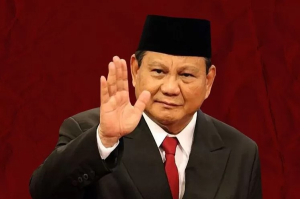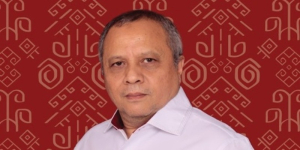Indonesia calls for restraint, seeks de-escalation in Iran-Israel conflict
Indonesia expresses deep concern over the escalating conflict between Iran and Israel, urging all parties to exercise restraint to avoid further deterioration of regional stability.
”We hope that this tension can be resolved soon and that the involved parties can hold back, as continuing along this path will only worsen the situation in the region,” Indonesian Foreign Minister Sugiono said on Monday, June 16, 2025.
Sugiono revealed that President Prabowo Subianto had received two invitations related to regional affairs. First was for Russia’s Victory Day celebrations in May, which he did not attend. Second is for a Summit in Istanbul scheduled for June 21, 2025 which President Prabowo is expected to attend.
“The Istanbul meeting could provide an opportunity to address some of these urgent regional matters,” he cited.
The invitations were sent in February this year and reflect Indonesia’s ongoing engagement in regional diplomacy.
“President Prabowo sees this [Summit] as an important forum and intends to use it strategically to represent Indonesia’s stance on pressing global issues,” said the Foreign Minister.
As report by Guardian, direct military conflict between Israel and Iran broke out on June 13, 2025, marking the most dangerous escalation in Middle Eastern geopolitics in over a decade. The exchange began when Israel launched a coordinated airstrike campaign, dubbed Operation Rising Lion, targeting key Iranian nuclear and military sites.
Israel deployed over 200 fighter jets in five aerial waves that struck more than 100 targets inside Iranian territory. The strikes focused on uranium enrichment facilities at Natanz, Isfahan, Fordow, and Khondab, as well as missile bases and IRGC (Islamic Revolutionaty Guard Corp) leadership compounds.
Among the dead were senior Iranian commanders, including IRGC leader Hossein Salami and Armed Forces Chief of Staff Mohammad Bagheri, as well as nuclear scientists Fereydoon Abbasi-Davani and Mohammad Mehdi Tehranchi. Civilian casualties were also reported in western Tehran and Isfahan.
Iran retaliates
On the same day, shortly after nightfall, Iran retaliated with a coordinated launch of over 150 ballistic missiles and more than 100 drones aimed at Israeli territory, including Jerusalem, Tel Aviv, and Haifa.
“Iran launched a large-scale retaliation named Operation True Promise III,” reported Guardian, noting that the barrage continued into Saturday morning.
In Tel Aviv, missile strikes damaged residential buildings in the Ramat Gan district, killing at least three civilians and injuring dozens more. In Haifa, key infrastructure such as ports and oil refineries were hit, causing widespread fires and power outages.
Iran also unveiled a new weapon during the attack: the Haj Qassem guided ballistic missile, named after the late Quds Force General Qassem Soleimani. “The launch of the Haj Qassem missile marks a new chapter in Iran’s long-range strike capability,” reported The Economic Times.
Already have an account? Sign In
-
Start reading
Freemium
-
Monthly Subscription
20% OFF$29.75
$37.19/MonthCancel anytime
This offer is open to all new subscribers!
Subscribe now -
Yearly Subscription
33% OFF$228.13
$340.5/YearCancel anytime
This offer is open to all new subscribers!
Subscribe now







